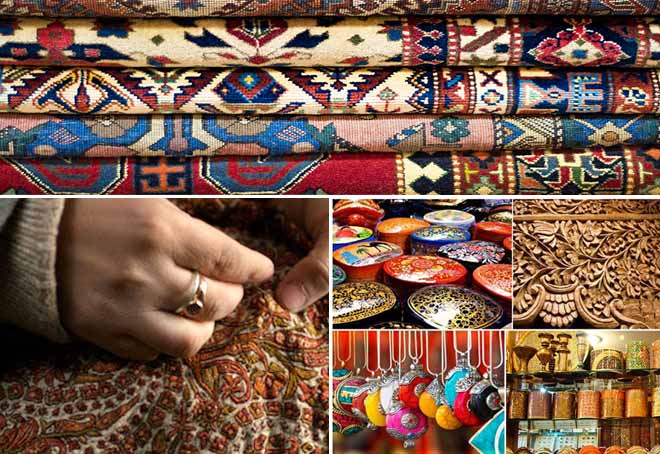Introduction
The artisanal and handmade products industry, renowned for its unique charm and craftsmanship, is experiencing a digital transformation. Information technology (IT) is revolutionizing how artisans create, market, and sell their goods. From reaching global audiences through e-commerce to ensuring authenticity with blockchain, IT empowers artisans to blend tradition with innovation. By adopting cutting-edge tools, makers of handcrafted products are not only expanding their market reach but also preserving cultural heritage in a rapidly evolving digital world.
1. E-Commerce Platforms and Global Market Access
Revolutionizing Sales and Reach
E-commerce platforms have broken down geographical barriers, enabling artisans to showcase and sell their products globally. Online marketplaces such as Etsy, Amazon Handmade, and Shopify have provided dedicated spaces where small businesses and individual creators can connect with customers beyond their local regions.
Benefits for Artisans:
Increased Visibility: Artisans can reach a global audience with minimal upfront investment.
Direct-to-Consumer Sales: Selling directly to customers without intermediaries increases profit margins.
Customizable Storefronts: Websites and e-commerce tools allow artisans to present their brand uniquely.
Future Trends:
Integration of augmented reality (AR) tools to offer virtual product trials for items like handmade jewellery and home décor.
Enhanced personalization options powered by AI, allowing customers to customize handmade goods before purchase.

2. Digital Marketing and Social Media for Brand Building
In the past, word-of-mouth and local markets were the primary marketing channels for artisans. Today, digital marketing tools have opened new avenues for brand building and customer engagement.
Key Technologies and Platforms:
Social Media Platforms: Instagram, Pinterest, and Facebook are popular for visually showcasing handmade products.
Content Marketing: Blogging, video tutorials, and behind-the-scenes content foster storytelling and authenticity.
Influencer Collaborations: Partnering with influencers helps increase reach and brand credibility.
Future Potential:
Advanced analytics will enable artisans to gain deeper insights into customer preferences, allowing for data-driven marketing strategies.
3. Automation Tools for Order and Inventory Management
Managing orders and inventory efficiently has been a significant challenge for small artisans, but IT solutions have simplified these processes.
Benefits of IT Solutions:
Inventory Tracking Software: Tools like Craftybase and QuickBooks help artisans manage stock levels and materials.
Order Fulfilment Platforms: Automation tools streamline shipping and logistics, reducing time and errors.
Emerging Trends:
Cloud-based solutions that integrate real-time inventory data with sales platforms to avoid overbooking or stockouts.

4. Blockchain for Authenticity and Provenance
Authenticity and origin are critical in the handmade products industry, where counterfeiting can diminish value. Blockchain technology offers a way to verify the authenticity and provenance of artisanal goods.
Applications:
Traceability: Blockchain records every stage of a product’s journey, from sourcing materials to final sale.
Proof of Authenticity: Digital certificates linked to blockchain provide customers with verifiable ownership and origin data.
Future Implications:
Blockchain-powered marketplaces could create decentralized platforms for trading and authenticating handmade goods.
5. Cloud-Based Collaboration and Design Tools
Collaboration tools are enabling artisans to work together, share design ideas, and co-create products even when geographically separated.
Tools and Technologies:
Cloud Storage and Collaboration: Platforms like Google Drive and Dropbox facilitate sharing sketches, blueprints, and resources.
Digital Design Software: Tools like Adobe Illustrator and Procreate are used to create product designs that blend traditional artistry with modern precision.
Outlook:
AI-driven design assistance will further enhance creativity by suggesting patterns, colour schemes, and layout adjustments.

6. Virtual Craft Fairs and Online Community Building
With the rise of virtual experiences, online craft fairs and artisan marketplaces are replacing traditional events.
Advantages:
Increased Accessibility: Artisans can participate from anywhere, eliminating travel expenses.
Expanded Audience Reach: Customers from across the globe can attend virtual events.
Interactive Features: Live video streaming and chat enable direct interaction with buyers.
Future Possibilities:
Enhanced VR environments could replicate the tactile experience of shopping at a physical craft fair, allowing users to "handle" virtual products.
7. Data Analytics for Consumer Insights
Modern IT solutions offer powerful analytics that help artisans understand consumer behaviour, preferences, and market trends.
Examples of Insights:
Popular Product Categories: Identifying best-sellers to focus production efforts.
Geographic Demand: Targeting marketing efforts based on location-based purchasing trends.
Customer Feedback Analysis: Analysing reviews and feedback for continuous product improvement.
Emerging Trends:
Predictive analytics could guide artisans on future design trends and seasonal demand patterns, enhancing strategic planning.
8. 3D Printing and Hybrid Crafting Techniques
While traditional craftsmanship is irreplaceable, 3D printing technology offers complementary possibilities, blending handcraft with digital precision.
Current Applications:
Prototyping: Rapidly creating models before finalizing a handmade product.
Customization: Personalized Molds and intricate components produced with 3D printers.
Future Implications:
Affordable 3D printing could democratize access to customized production for small-scale artisans, merging handmade artistry with technological precision.

Conclusion
The infusion of IT technology into the artisanal and handmade products industry is bridging the gap between tradition and modernity. E-commerce, blockchain, cloud collaboration, and smart automation are giving artisans the power to scale globally while maintaining authenticity and quality. As technology advances, it will further enhance creativity, streamline operations, and deepen the connection between artisans and consumers. Embracing these digital tools ensures that craftsmanship continues to thrive in a tech-driven marketplace, making handmade goods more accessible, traceable, and appreciated worldwide.
